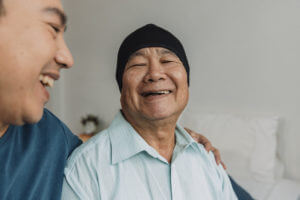
For years, the Nevada Test Site has been shrouded in mystery and controversy. Its legacy continues to affect many lives today, especially those who lived downwind of this nuclear test site during the 1950s and early 1960s. Here, we aim to shed light on these impacts, focusing on the health challenges faced by Downwinders® and the avenues available for support and compensation.
Understanding the Nevada Test Site
The Nevada Test Site, located in the desert northwest of Las Vegas, played a significant role in America’s history. Established in 1951, it became the main testing ground for nuclear weapons in the United States. Over the years, hundreds of nuclear tests were conducted here, both above and below ground, leaving a lasting impact on the environment and communities nearby.
The site was chosen for its remote location, but it was not isolated enough to prevent the spread of radioactive debris, known as fallout. The prevailing winds carried radioactive particles far from the testing grounds, affecting certain communities in Nevada, Arizona, Utah, and beyond. These radioactive materials not only contaminated the air but groundwater systems and food chains, as well. This nuclear fallout was invisible, but its effects were far-reaching and devastating.
Health Impacts on Downwinders®
Radiation exposure from nuclear tests poses serious health risks. The people living in areas affected by fallout, known as Downwinders®, face increased risks of cancer and other illnesses.
Studies have shown that cancer rates in downwind communities are significantly higher than the national average, particularly for certain types of cancer like thyroid cancer, colon cancer, and leukemia. A 1997 report by the National Cancer Institute found that the nuclear tests at the Nevada Test Site released high levels of radioactive iodine-131, especially during 1952, 1953, 1955, and 1957. The report estimates these tests could cause an extra 10,000 to 75,000 thyroid cancer cases. Further reports have also estimated about 22,000 more cancer cases and 2,000 deaths from leukemia directly linked to radiation exposure.
In addition to increased cancer risks, Downwinders® may experience other long-term health issues. High doses of nuclear-related radiation during early pregnancy can increase the risk of fetal malformations. Radiation can also weaken the immune system, making it more difficult to fight infections. Other chronic respiratory conditions such as lung fibrosis and pulmonary fibrosis are also more common in Downwinders®, impacting overall quality of life.
The connection between radiation exposure and health issues is complex but undeniable. Many Downwinders® have suffered from illnesses believed to be linked to the fallout. These health challenges extend beyond the physical, affecting many other areas, too, such as emotional well-being, relationships, and finances.
The Downwinders® Compensation Program
To support those affected, the U.S. government established a compensation program. The program provides financial compensation to eligible individuals who developed certain cancers or illnesses due to radiation exposure from the Nevada Test Site. It acknowledges the hardships faced by Downwinders® and aims to offer some form of reparation.
To qualify for compensation, individuals must have lived in specific counties in Nevada, Utah, or Arizona during designated time periods. Additionally, they must have been diagnosed with one of the specified cancers, such as thyroid or breast cancer. The process involves verifying residency and medical records to establish eligibility.
Applying for Compensation
The application process for compensation can be daunting, but help is available. The Cancer Benefits Center for Downwinders® is dedicated to assisting individuals in navigating the program. Their goal is to simplify the process, ensuring that those entitled to compensation receive it promptly and without unnecessary stress.
Applicants must provide documentation proving their residency during the specified periods and medical records confirming their diagnosis. It is crucial to gather all necessary paperwork to expedite the process. For family members of deceased individuals, claims can still be filed on their behalf, ensuring that the compensation reaches those who deserve it.
The Role of the Cancer Benefits Center for Downwinders®
The Cancer Benefits Center for Downwinders® plays a vital role in assisting individuals with their compensation claims. They are a trusted resource, offering guidance and support throughout the application process. Their team is well-versed in the requirements and intricacies of the compensation program for Downwinders®.
Beyond claim assistance, the center actively promotes awareness of the program and educates the public on the health impacts of nuclear testing. They collaborate with healthcare professionals and legal experts to ensure that Downwinders® receive the attention and support they need.
The legacy of the Nevada Test Site continues to affect downwind communities, presenting ongoing health challenges. However, compensation programs and organizations like the Cancer Benefits Center for Downwinders® offer hope and support for those affected by government-created radiation. By understanding the history, health impacts, and available resources, individuals can take proactive steps toward securing the compensation and support they deserve.
Nevada Test Site: Compensation for Downwinders®
If you or a loved one has experienced long-term health effects as a result of nuclear testing at the Nevada Test Site, seek support from the Cancer Benefits Center for Downwinders®. We provide guidance, support, and expertise to help individuals and families access the compensation they are entitled to.
Visit our website or reach out to us at 1 (855) 631-7197 to learn more about how we can assist you. Alternatively, you can use our convenient form to contact us online. Remember, you are not alone in this fight. The dedicated providers at the Cancer Benefits Center for Downwinders® are here to help. Take the first step today and explore the resources available to support you and your loved ones.
Sources:
 Downwinders® Claims
Downwinders® Claims